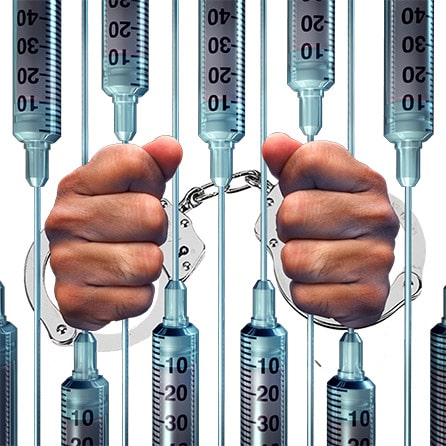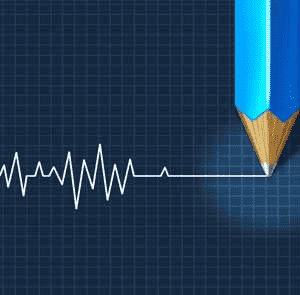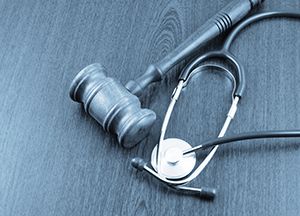FAQs - Medical Negligence in Israel
Introduction
 The medical profession has seen an increasing prevalence and frequency of legal proceedings on medical liability since the mid-20th century. Some people believe that increased litigation is beneficial because learning from mistakes saves the community's wellbeing, which helps keep doctors responsible. The opponents believe, however, that proceedings are harmful for maintenance of health standards, claiming there is nothing more harmful than the suggestion of patients suing their doctors.
The medical profession has seen an increasing prevalence and frequency of legal proceedings on medical liability since the mid-20th century. Some people believe that increased litigation is beneficial because learning from mistakes saves the community's wellbeing, which helps keep doctors responsible. The opponents believe, however, that proceedings are harmful for maintenance of health standards, claiming there is nothing more harmful than the suggestion of patients suing their doctors.
In contrast to any other occupation, medicine depends on human beings to make complex decisions that may have serious and long-lasting implications. Unfavourable results are usually an inherent threat to medical care and do not generally represent inadequate treatment.
Q1. What is medical negligence?
Medical negligence is characterized as negligent medical care, involving physicians, clinics, nurses, chiropractors, therapists, or other physicians. A medical practitioner that is not acting in a way that is deemed to be the agreed norm of diagnosis or treatment for an illness will be found liable for all resulting damages, including distress and injury, medical costs, income loss or unlawful death. The phrase "medical negligence" is also referred to as "medical malpractice."
Q2. What are the main statutes and regulations relating to medical negligence?
In Israel, there is no clear law on medical misconduct. Present legislation refers to neglect offences, surgical assaults, infringement of the statute and violations of the Patient's Rights Law.
The tort of negligence, in Articles 35 and 36 of the Tort Ordinance [1] also applies. With Article 35 being Negligence and Article 36 being Duty Towards All.
The case on negligence, as set out in the Torts Ordinance, is a structure that enables the legislature to assess criteria that are to be considered for damage and damaging factors when there is a duty of responsibility in the relationship between them. There are aspects of the responsibility for care, carelessness (violating the obligation to provide care) and injury in analyzing the reasons for neglect.
Q3. What can you sue for?
At any stage of medical treatment, medical negligence can occur;
- In the first step, for example in laboratory diagnosis.
- At the latter stages, for example, diagnostic presentation or establishment or implementation of a recovery facility and/or the operation.
- At the patient care post-operative stages. Conflicts with medical negligence laws are popular in the fields of dentistry, oncology, maternity, prescriptions and it’s side effects, surgical errors and other medicinal fields. Any health professional may be prone to making mistakes.
A variety of situations in which a medical professional makes an error or incorrect judgment can cause medical malpractice. Common examples of incidents of medical negligence include:
- Birth injuries
- Gynaecological and obstetrical malpractice
- Surgical errors
- Emergency Room negligence
- Anaesthesia errors
- Misdiagnosis or delayed diagnosis
- Failure to diagnose cancer
- Medication errors
- Brain injuries
- Patient neglect
- Failure to obtain necessary patient information
Q4. How do you know if you have a medical negligence case?
To decide whether negligence occurred in a specific situation, the Court determines if the features of negligence wrong have been complied with in the case under consideration:
- The existence of a caring obligation - is the defendant's care obligation to the complainant.
- Infringement of this obligation.
- Harm attributable to the infringement — Has a claimable damage to a complainant been sustained in the light of the court.
- A causal relationship exists between the actions of the defendant, neglect and injury.
The plaintiff must assert that all four factors apply in all the claims based on medical malpractice.
If all the aforementioned factors are complied with, the Court will decide that the affected plaintiff has been neglected and compensated. There is no exact test for the responsibility of patient abuse. The Court shall review the facts of the situation, the organization, the conditions, the disease and the cure, case by case.
Before proceeding with the medical negligence claim, it is important to collect vital information. To do this lawyers receive from the client power of attorney and ask the client to sign a waiver of confidentiality. If people resort to a lawyer for medical negligence payments, it must be concluded that they should not hide the details concerning their state of health and that they must give permission to the information being disclosed and paperwork concerning their state of health to the medical establishment concerned.
Q5. What kinds of damages (money awards) are available to the plaintiff in a medical malpractice lawsuit?
 Two categories of monetary loss were distinguished by The Courts of Israel: general and special damage. The Israeli law does not specify how the victim's pain and suffering should be compensated and the judge must give his impression on medical opinions and measure the scope. The ruling established requirements that affect the compensation sum. The age of the injured after the injury shall impact the amount of damage and disability pay. The Court mainly investigates the impact and scale of the kind of injury on the quality of life of the survivor.
Two categories of monetary loss were distinguished by The Courts of Israel: general and special damage. The Israeli law does not specify how the victim's pain and suffering should be compensated and the judge must give his impression on medical opinions and measure the scope. The ruling established requirements that affect the compensation sum. The age of the injured after the injury shall impact the amount of damage and disability pay. The Court mainly investigates the impact and scale of the kind of injury on the quality of life of the survivor.
In the case of medical malpractice and neglect, financial benefits will be provided sometimes, including the payout for medical costs in the past and the future, recovery, compensation for missed or job losses, trauma, or other mental injuries. In this context, we are talking about significant amounts of money.
Compensation for loss of earning capacity - this compensation takes into account the loss of the injured person's income due to the wrongs perpetrated against him. Therefore, if a person is hurt physically by a misdemeanour and is unable to persevere with his job, the court will offer him compensation for the lack of earnings ability.
Expenses for treatment - the court will consider the claimant's bills for physical, nursing, psychological, therapy and hospitalisation, and travelling supplementary costs.
Q6. In what cases of negligence and malpractice is there a good chance of receiving compensation for damage?
Unfortunately, there are very frequent incidents of medical neglect. They are prevalent in pregnancy and delivery, dentistry, cardiology and other medical fields. In the following examples, compensation for medical care will normally be obtained:
- Incorrect diagnosis of the malady;
- Incorrect surgical procedure or failure to remove foreign bodies after the completion of a surgical procedure;
- Removal of healthy organs together with the diseased ones;
- Scalding of tissue and organs during a surgical procedure;
- Mixing of blood groups in the course of a blood transfusion or an intravenous administration;
- Administration of an incorrect treatment process.
Q7. What is the procedure in the initiation of a lawsuit according to Medical Malpractice law?
The commencement of a suit involves the submission of an independent medical opinion in cases of suspected medical neglect. Without an expert's report, one cannot continue with a case. However, two or three medical records may be produced in such proceedings. The defendant may provide his own specialist's examination, in which case the court shall nominate an independent professional. It is therefore important to get a professional report from a qualified expert who knows how to produce an affidavit of those reports.
Q8. What are the medical negligence rules for foreigners?
Many foreigners come to Israel to get medical treatment. If neglect occur at an Israeli medical institute, a foreign resident is entitled, in compliance with the Israeli Patient's Rights Law of 1996, for equal compensation as any Israeli citizen.
Q9. How to file a medical negligence claim?
It is insufficient to simply claim that medical negligence has taken place to sue for damages in a case of medical negligence. It should therefore be shown that it has caused real harm and a link of cause and effect between the medical mistake performed and the harm caused. An accusation of medical incompetence does not necessarily offer enough basis for the prosecution of an irresponsible doctor.
Q10. What are your rights as a patient?
In compliance with Israel's Law on the Patient's Rights Law, all patients are entitled to full data on their health status and the procedures and expected outcome of their care received from their doctor. Besides, all patients need to give their approval to be fully aware of the care procedure they will be undergoing to the medication they get. When a medical officer does not supply the patient with vital details, no alternatives are offered for the latter.
Such a case itself offers ample justification for an action because, under such situations, there is no need to provide proof of the degree of health damages alleged. Violation of human rights is a cause for compensatory damages
Q11. What are the limitations to the claim?
If the plaintiff's medical record failures or defects, this impairs the right of the injured patient to support the argument for abuse. The judge, however, may in situations such as those, opt to pass the duty of persuasion to the defendant-doctor.
Q12. When Can a Claim Arise Over Lack of Express Consent?
- The right of the patient not to be given unintentional medical treatment. He has the right, so that he can determine for himself what treatment procedure to use, to get clarification.
- The fact that the patient is not given all the data he wants to decide about the different care alternatives in this case can be evident in medical malpractice. The responsibility of the physician to warn the patient about his condition and the potential outcomes stem from the general care duty that the physician and the hospital owe to the patient. If the risks of therapy, the options, are not disclosed, so the obligation of care is violated.
 Q13. What kind of disputes can be settled through mediation?
Q13. What kind of disputes can be settled through mediation?
Lawsuits involving medical negligence are often resolved outside trials. Both medical facilities have liability protection covering incidents of suspected medical negligence or malpractice; thus, all medical professionals are insured for occupational risk. Where the mistake affects a person, doctors and hospitals tend not to go to court and risk damaging their reputation; so they also prefer to resolve the matter using mediation. The settlement will take place on the scope of the losses reported and the insurance provider will then pay the damage. Of these cases, compensation will be granted to the victim in a very short time.
 English
English
 عربي
عربي Русский
Русский 官话
官话 português
português
 Türk
Türk 



















